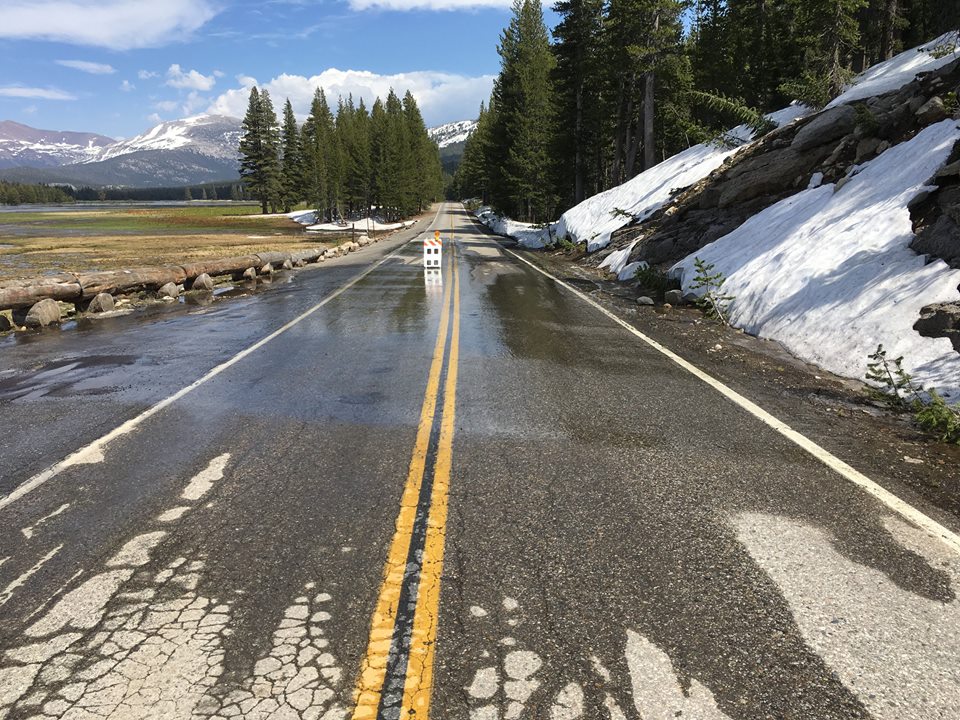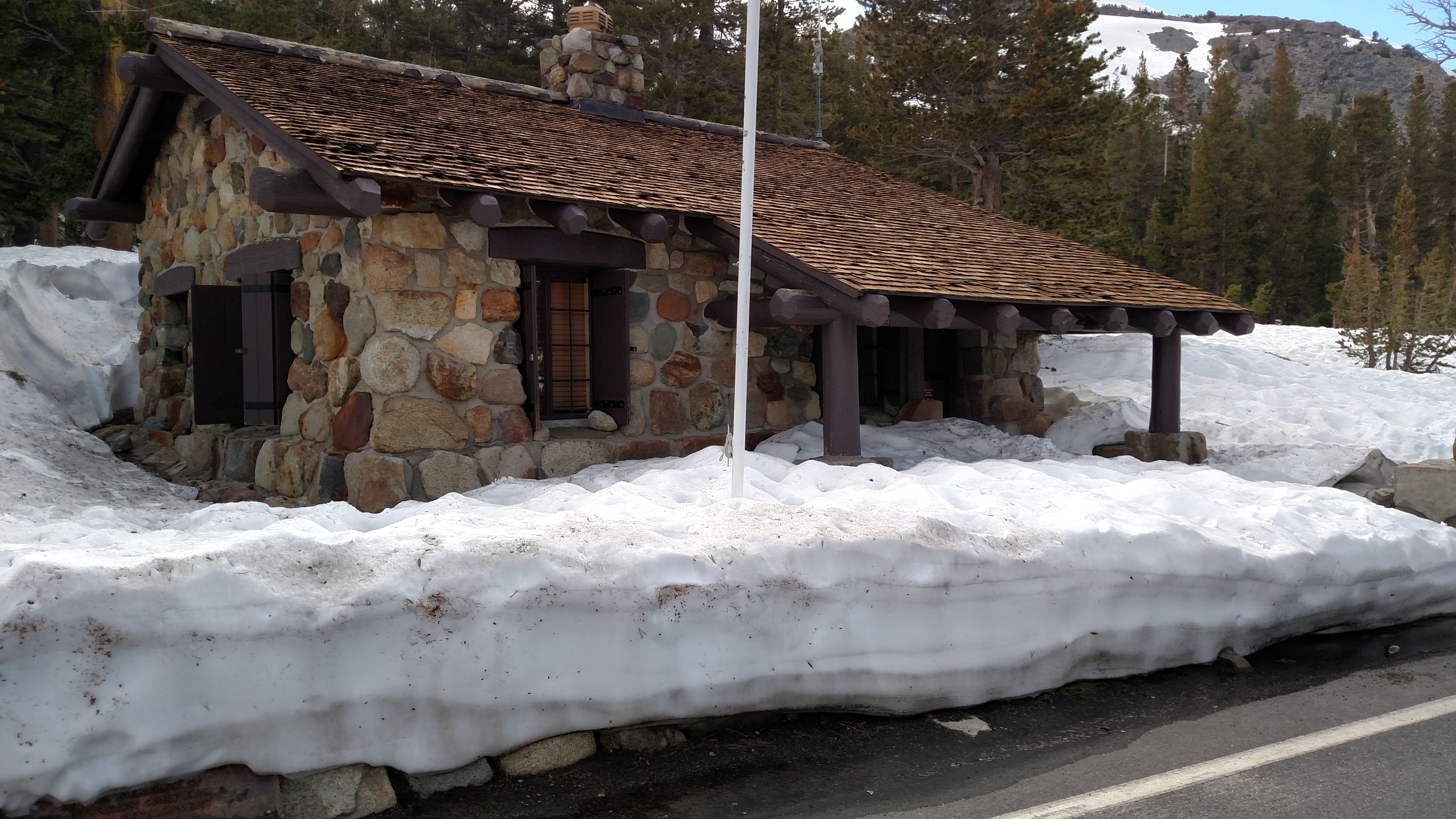
***
Tioga Road in Yosemite National Park Remains Closed
editors note: Tioga Pass road is open from east to the Yosemite National Park boundary/Tioga Pass, which allows all the access you need for backcountry skiing and riding in this zone.

by Yosemite National Park
The Tioga Road in Yosemite National Park (Highway 120 through the park) remains closed to all vehicular traffic, including bicycles. Melting snow is causing water to run over the road in multiple locations, creating a safety hazard. Park staff and partners continue to conduct necessary repairs to power, communications, water, and sewer systems along the Tioga Road following a record-breaking year for winter snowpack. The park is diligently working to ensure that adequate sanitation facilities are in place to meet visitor needs and to protect the water quality in the Tuolumne River watershed. Due to safety and sanitation concerns, Tioga Road will remain closed until the impacted power, communications, water and sewer systems are operational to meet the needs of park staff and visitors. There is no anticipated opening date at this time. April snow surveys indicated that in the high elevation regions of Yosemite, the park saw the highest snowpack on record. In many locations above 8,000 feet in elevation, the snowpack measured over 200 percent of average (based on water content). The increased snowpack has resulted in a late opening of the Tioga Road for the summer season. Warm summer weather has led to increased melting of the snowpack, resulting in high water levels that are fluctuating daily. Anyone planning to hike or backpack in the higher elevations of Yosemite should be prepared for winter hiking and camping conditions. Trails are still impacted by snow and ice. River crossings are high and swift moving. There are several high water areas currently impacting the Pacific Crest Trail (PCT) and the John Muir Trail (JMT) in Yosemite National Park. Anyone planning a trip on the PCT through Yosemite should use caution and be prepared to turn back in the event of high water crossings. All visitors planning to hike or camp in the high elevation regions of Yosemite are urged to be prepared for snowy conditions and possible treacherous stream crossings while hiking in wilderness areas this summer season. Stream crossings on the PCT, JMT and other trails can be deceiving and should be avoided until water levels decrease. |
Last updated: June 23, 2017